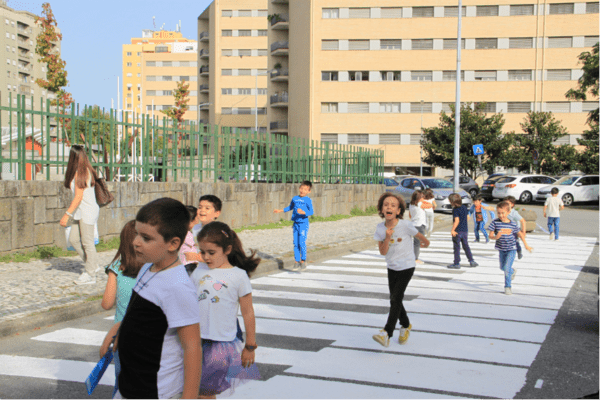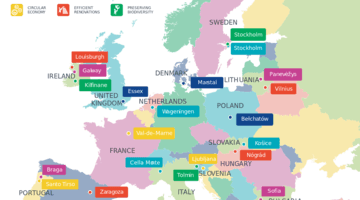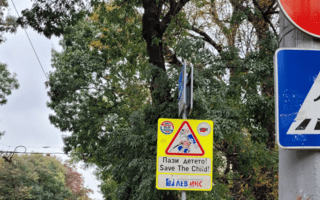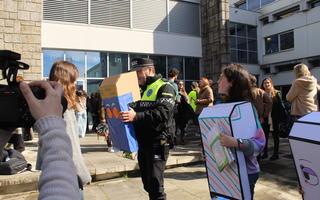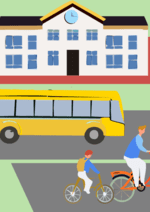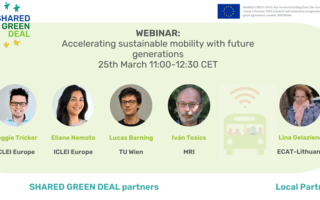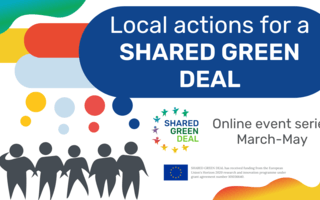Braga (Portugal)
Summary of the local experiment
An urban mobility lab for smart and sustainable mobility in the context of schools will be created in Braga. The mobility lab will feature 30 young people from three different schools and 5-10 other stakeholders. By the end of the social experiment, policy recommendations for travel to school strategies at the city level will be formulated, and context-specific solutions will be co-created to raise awareness and support public and social acceptance of smart and sustainable school mobility.
Local context
Braga is a city in the Northern part of Portugal, with almost 200,000 inhabitants. It’s a dense city, especially compared to the other cities in this part of the country (population density 1,054 inhabitants per km2). Most of the population is concentrated in the city centre, providing thus favourable conditions for sustainable mobility. Most of the city is easily walkable and cyclable due to very good topographic conditions.
It is worth mentioning the particularity of Braga's urban model, within the framework of the 15-minute city, with flat and densely populated areas. Despite the favourable conditions for active modes of transport, the city has high traffic flows and a high concentration of vehicles, especially at school entry and exit times.
The population is increasing, and Braga is one of the youngest cities in Europe. This factor also helps in achieving changes in the area of sustainable mobility.
Since 2017, the city has had a school bus system with stops at five different locations. There is also a Bicycle train (Ciclo Expresso).
In 2022, Braga was honoured by the European Commission with the European Mobility Week award for “its remarkable activities in promoting sustainable urban mobility”.
Specific needs and challenges
The modal share of the city is currently focused on cars (71%), cycling is quite low (1%), while walking is 16% and public transport is 11%. One of the main goals of the city (also detailed in the recently developed Sustainable Urban Mobility Plan) is to achieve a better modal split, moving towards a walkable and cyclable city and promoting public transportation.
The main challenges are to achieve changes in the current mobility practices to increase the use of sustainable transportation modes in schools, to contribute to increased citizen participation in the development of sustainable school mobility plans and change attitudes towards mobility by empowering and raising awareness.
Detailed description of the experiment
The objectives of the experiment are to increase the use of sustainable modes for commuting to school, to contribute to increased public participation in sustainable school mobility, and to build capacity for sustainable mobility. The municipality of Braga, in collaboration with the University of Minho, has developed in-depth experiences in engaging the school community in the promotion of sustainable mobility, namely through the application of research techniques (e.g. focus group, interviews, awareness-raising actions).
Within this experiment, the municipality has as its main goal to improve and develop the already existing system (SchoolBus and CicloExpresso) and to increase the number of its users. To achieve these objectives, they are planning to develop a school mobility laboratory (to raise awareness of the target group on alternative ways to get to school) and also to encourage schools to develop the topic of sustainable school mobility and include it in the educational context.
This social experiment will be developed in three schools (Escola Secundária D. Maria II, Escola Secundária de Lamaçães, Escola Básica André Soares). The main criteria for the selection of these schools were their strategic location in the city centre, a flat and densely populated area, and their history of participation with the municipality in school mobility projects.
The schools under study benefit from sustainable mobility projects such as SchoolBus and CicloExpresso and are being targeted for interventions in the public space to improve the conditions of travel to school by soft modes. As such, it is essential to combine interventions in the public space with social innovation initiatives to empower sustainable mobility and consequently change mindsets, attitudes, and mobility behaviours. With these initiatives, we aim to empower the 30 youngsters (10-16 years old), teachers, and parents of these three schools to be pioneers in the transition to sustainable mobility.
Involvement of the target group
The project team expects to involve the school community as a whole (e.g. students, teachers, parents) in the promotion of sustainable urban mobility habits during the local experience. Different age-appropriate co-creation tools will be used: 3D Mapping methodology, mind maps, and virtual reality. Furthermore, a seminar will be organized, inviting experts/researchers from the city's higher education institutions. Students and teachers will be invited through direct contact with the school management; the parents will be invited through the school management and the parents' association existing in the three schools. It is worth mentioning that these schools, based on previous experiences, actively participate in building sustainable mobility solutions.
Partners
Braga Municipality over the last few years has been establishing several partnerships in the transition towards sustainable mobility. Besides the partnerships with schools and parents' associations of these schools, it collaborates with municipal companies (Transportes Urbanos de Braga - TUB and Municipal Police), city associations (APD - Portuguese Association of the Disabled; ACAPO - Association of the Blind and Visually Impaired of Portugal), Urban Innovation Laboratory, and Parish Councils. The city has invested in a partnership of almost a decade ago with the Higher Education Institutions located in the city, particularly the University of Minho. This partnership is essential for this project to involve specialists from different areas such as Geography, Sociology, and Architecture, among others.
Additional remarks
Besides the activities in an educational context, the project also seeks to inform city users and residents of the area surrounding the schools about the social experiment. Building on children’s capacity to mobilize and raise awareness, this project seeks to convey messages to the community about children's concerns regarding the need to change mobility practices to improve air quality and redistribute public space to increase the space for soft modes.
It should also be noted that the results of the workshops will be published in scientific journals.
Jun-Jul 2023
Synthesis Forum
Jul-Sep 2023
Fields of Action Forum
Sep-Oct 2023
Youth Mobility Policy Forum
Oct 2023
Study Tour (Sofia)
Oct-Nov 2023
Youth Design Forum I
Nov-Dec 2023
Youth Design Forum II
Jan-Feb 2024
Final Forum
Related Green Deal Priorities
TIMELINE
Case Study Guides
|
Find out more


CONTACT
For further details please contact co-leads Professor Chris Foulds (chris.foulds@aru.ac.uk) and Professor Rosie Robison (rosie.robison@aru.ac.uk).

This project has received funding from the European Union’s Horizon 2020 research and innovation program under grant agreement No 101036640. The sole responsibility for the content of this website lies with the SHARED GREEN DEAL HAS project and does not necessarily reflect the opinion of the European Union.
